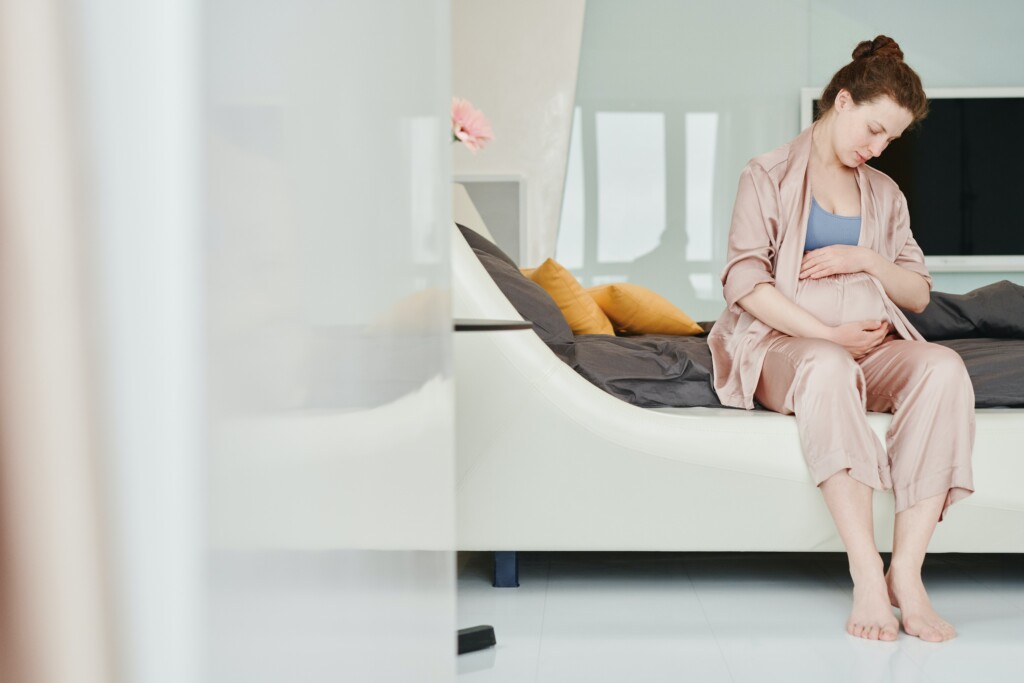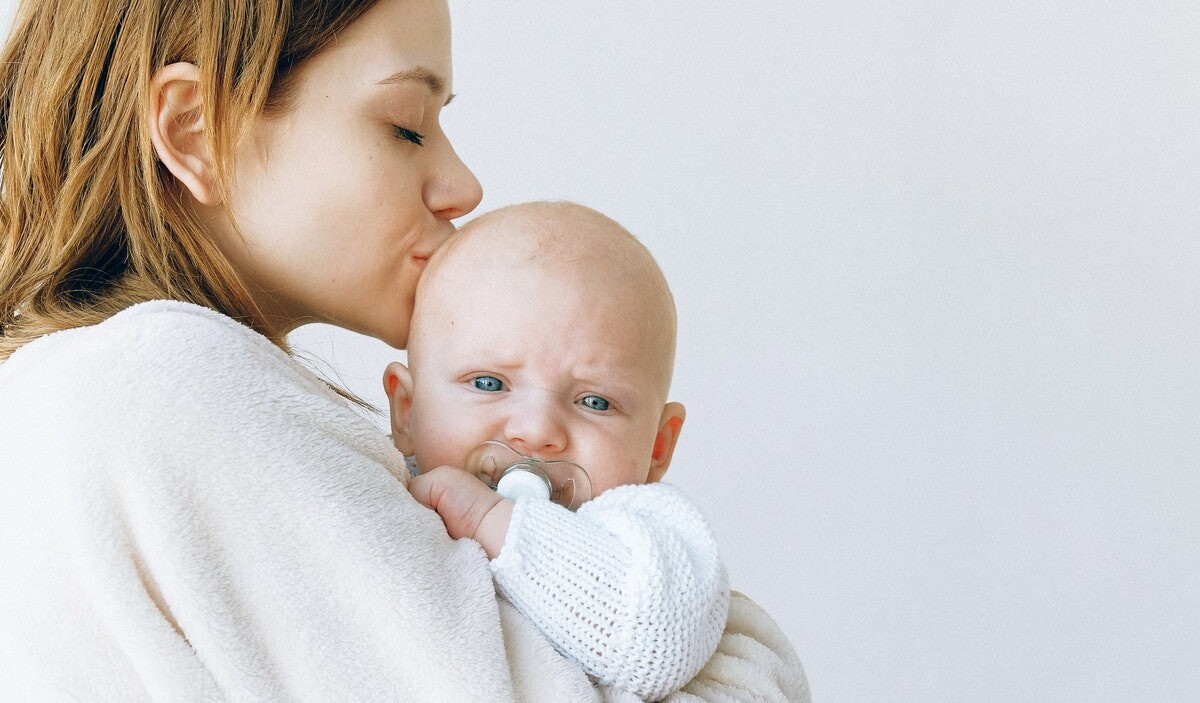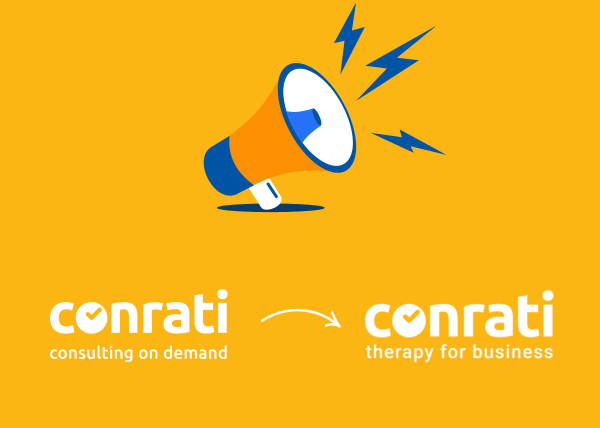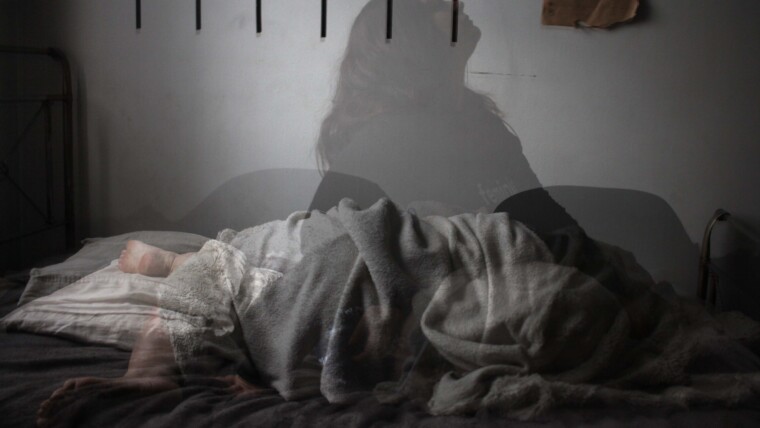
During your pregnancy, your head was likely filled with all things related to the actual birth of your new baby. From doctors to midwives, c-sections and natural labour, it was all about the day your baby would be earthside. Daydreams about the flood of emotions you expected to feel the first time you held your bundle of joy in your arms—happiness, pride, joy, a sense of relief after counting fingers and toes.
What are we missing?
Most first-time parents spend little time considering the realities of anything that follows birth. This is usually because it is hardly spoken about and one cannot know what one has never experienced before. The sharing of knowledge and awareness when it comes to the postpartum stage of pregnancy is absolutely vital. Parents, and especially mothers, need to know that there is a fourth trimester of pregnancy and it looks different for everyone.

The realities of life after birth
Following birth, you might feel sad, hopeless, depressed, upset, confused, and even guilty about having these emotions. Yet, this is extremely common in millions of mothers before and beyond us. The hormonal spectrum is in total disarray during pregnancy and following birth, during breastfeeding as well as with the onset of sleepless nights.

Within a few days of giving birth, these life-altering events can often lead to what is known as “baby blues”. During this time a mother can experience mood swings, crying spells, anxiety, and difficulty sleeping. Women who continue to experience negative emotions past the initial post-baby window and possibly a host of other distressing symptoms may have a more serious but still common condition called postpartum depression
While it is a diagnosed condition it is also a very normal state of mind. With the changes in a woman’s body, the addition of the huge responsibility of parenthood, the ongoing demands of our modern lives and the natural state of sleeplessness it cannot be stressed enough that postpartum depression is indeed very normal to expect and experience.
What exactly is postpartum depression (PPD)?
“Postpartum” refers to the period following childbirth, postpartum depression is a severe and long-lasting type of depression linked to this time. While postpartum depression, or PPD, is frequently described as following within four weeks after birth, symptoms can arise at any time within the first year postpartum and even before delivery.
How does postpartum depression differ from the baby blues?
After childbirth, a woman’s body undergoes a massive hormonal shift. The female hormones estrogen and progesterone peak during the last trimester of pregnancy and continue with breastfeeding. This, along with dramatic changes to lifestyle plays a role in the development of baby blues and postpartum depression in women.
The baby blues is a short-term effect of the hormonal fluctuations that begin in the days immediately following childbirth. As many as 50 to 75% of new moms experience this. The baby blues can cause mood swings, feelings of sadness and anxiety, crying spells, loss of appetite, and trouble sleeping, but these feelings usually start to subside within 3 to 5 days and are gone in two weeks.
Unlike the baby blues, postpartum depression is a more severe and persistent condition that requires help and support. According to various estimates, it affects between 15 and 20% of new moms.
Reading the signs
Symptoms of PPD are similar to other types of depression:
- Feeling down or depressed for most of the day for several weeks or longer
- Feeling distant and withdrawn from family and friends
- A loss of interest in activities, including sex
- Changes in eating and sleeping habits
- Feeling tired most of the day
- Feeling angry or irritable
- Having feelings of anxiety, worry, panic attacks, or racing thoughts
Postpartum depression may also cause:
- Crying more often than usual
- Feelings of anger
- Withdrawing from baby
- Feeling numb or disconnected from the baby
- Worry that you will hurt the baby
- Feeling guilty about not being a good mom or doubting your ability to care for the baby
It’s also important to acknowledge social stigma as a contributing factor. The ideal of the unselfish, happy mother of a new baby is not realistic and drives feelings of guilt and self-loathing. Motherhood is challenging and a huge adjustment. Women should be permitted and encouraged to acknowledge the harsh realities as well as the blissful ones and stand united in these experiences.
Why should you seek help and open up?
Left untreated, PPD can have lasting effects on the whole family. It can weaken the bond between mother and child and potentially hinder the child’s development. Specifically, it increases the child’s risk for emotional and behavioural problems later on. Research indicates that the children of mothers with untreated PPD are more likely to cry excessively, experience delays in their language development, and have difficulty sleeping and eating.
When should I seek professional help, and who should I talk to?
It’s important to know that while the baby blues are temporary, they can still be distressing and take away from your ability to adequately care for your baby during those important early days. Reaching out to family and friends for support from the beginning and asking them for the help you need is a vital self-help tool to avoid facing the blues and depression alone.
You can rely on your support network as well as a therapist after birth. Depending on how your pregnancy, labour, breastfeeding and postpartum period went you may want to seek professional help. The process of bringing life into the world has so many facets and combined they can leave a new mother feeling overwhelmed and deflated. A therapist can help you decipher your emotions and give you a clear headspace to fully enjoy motherhood and the demands of parenting.

What can you do to improve your daily postpartum life
There are lifestyle strategies you can adopt at home to improve your ability to cope with PPD and potentially reduce some of the symptoms:
- Getting as much sleep as you possibly can, using all downtime in order to sleep
- Moving your body, even just a few minutes a day
- Asking family and friends for help
- Breastfeeding releases endorphins that make you feel good
- Make time to do things for yourself like reading a book or doing a body scrub
- Eating regular, healthy meals
- Joining a support group in your area
- Engaging intimately with your partner and doing parenthood as a team
While Postpartum depression should be normalised and given greater awareness it is also something that should not be downplayed and displayed as ‘the norm’. If you are struggling with these symptoms or even ‘just’ the baby blues, do something today to make for a better tomorrow.
Do not put yourself last and do not ignore the signs. You are at the core of your family and your new baby, that core needs to be strong and cared for. Neglecting yourself neglects those around you too.









Why your child should have a tutor
Conrati nominated as a Top Environmental Consulting Company by Futurology
Developing a panic disorder as a result of frequent panic attacks
How Cognitive-Behavioural Therapy (CBT) can benefit your mental health
How to boost 8 different forms of health
Conrati nominated as a Top Environmental Consulting Company by Futurology
How social media affects mental health
Understanding Bipolar Disorder